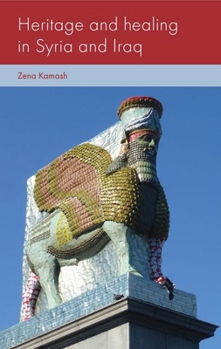Heritage and Healing in Syria and Iraq
This book explores what to do with heritage that has been destroyed in conflict. It charts a path through the colonial histories and traumatic wars of Syria and Iraq to examine the projects and responses currently on offer and assess their flaws and limitations, including issues of digital colonialism, technological solutionism, geopolitical manoeuvring, media bias and community exclusion.
Drawing on current research into the psychology and neuroscience of trauma and trauma recovery, and taking inspiration from artists and creative thinkers who challenge the status quo, this book envisages gentler, creative and ethically-driven ways to respond to heritage damaged in conflict that recentre people and their hopes, dreams and needs at the heart of these debates.Format:Hardcover
Language:English
ISBN:1526140837
ISBN13:9781526140838
Release Date:June 2024
Publisher:Manchester University Press
Length:288 Pages
Weight:1.28 lbs.
Dimensions:0.7" x 6.1" x 9.2"
Customer Reviews
0 rating





